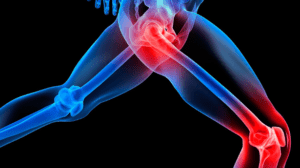
Cholesterol and Sugar:
This blog is an extract from Eat Fat, Get Thin by Dr Mark Hyman. It will show the correlation between higher levels of sugar in the diet and increased risk for heart disease. End of story…
In reality, the biggest source of abnormal cholesterol is not fat at all-it is sugar. The sugar you consume converts to fat in your body. And the worst culprit of all is high-fructose corn syrup present in sodas, juices and processed foods, it is the primary nutritional cause of most of the cholesterol we doctors see in our patients. Fructose is a problem because when ingested in high amounts (without the associated fibre found in whole fruit) it turns on the cholesterol production factory in your liver, called lypogenesis.
A study published in the American Journal of Clinical Nutrition looked at the impact that sugar intake had on cholesterol. The researchers carried out a meta-analysis of 39 randomized controlled trials on sugar intake. Overall it showed that people who ate higher amounts of sugar had significantly higher levels of triglycerides and LDL and total cholesterol. This effect occurred even if there was no change in weight with higher sugar and carb diets. In other words, it was not the weight gain that made the cholesterol worse, it was the sugar. So the real concern isn’t the amount of cholesterol in your blood, but the types of fats and sugar and refined carbohydrates in your diet, Of course, many health-conscious people today know that total cholesterol or LDL is not as critical as the following factors or numbers:
- § Your levels of HDL vs. LDL (HDL ideally greater than 60 mg/dl)
- § Your triglyceride levels (ideally less than 100 mg/dl)
- § Your ratio of triglycerides to HDL (ideally less than 1:1 or 2:1)
- § Your ratio of total cholesterol to HDL (ideally less than 3:1)
A 2015 study published in the Journal of the American Medical Association concluded that there’s a “significant relationship between added sugar consumption and increased risk for cardiovascular disease mortality”. The 15-year study, which included data for 31,000 Americans, found that those who consumed 25 percent or more of their daily calories as added sugars were more than twice as likely to die from heart disease as those who got less than 10 percent of their calories from sugar. On the whole the odds of dying from heart disease rose in tandem with the percentage of added sugar in the diet, regardless of the age, sex, physical activity level, and body mass index.
A 2014 study came to very similar conclusions. Here, those who consumed the most sugar – about 25 percent of their daily calories—were twice as likely to die from heart disease as those who limited their sugar intake to 7 percent of their total calories. A high-fat diet dramatically reduces the amount of sugar you consume, and it mitigates risk factors for cardiovascular disease in other important ways that are related to insulin. As Dr. Rosedale explains, insulin stores magnesium. If your cells become resistant to insulin, magnesium passes out of your body in your urine rather than getting stored in your cells.
Several meta-analyses have confirmed a high-fat diets’ role in reducing multiple risk factors for cardiovascular disease. One study published in the Journal of the Academy of Nutrition and Dietetics in 2013 looked at the differing effects of high-fat diets versus low-fat diets on blood lipid levels. It included 32 studies and found that high-fat diets resulted in significantly greater improvements in reductions of total cholesterol, LDL cholesterol, and triglycerides and beneficial increases in HDL cholesterol.
(Hyman, 2016)
This is a huge 180 for most people to get their heads around, seeing as fat has been demonised for so long and has actually led to the increased use of sugar in our food for flavouring, with detrimental effects. Let us know what you think of this research as we are really interested in getting your opinions on this!






